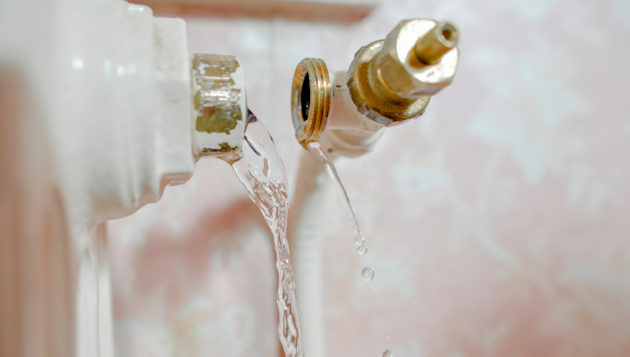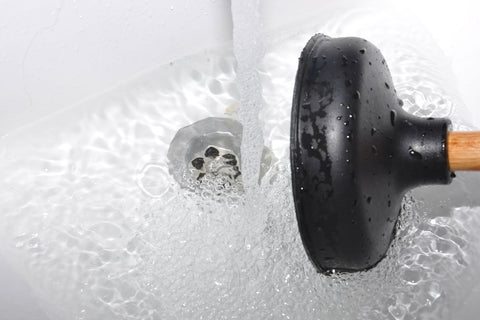Useful Methods for Winterizing Your Pipes and Preventing Freezing in Frigid Weather
Useful Methods for Winterizing Your Pipes and Preventing Freezing in Frigid Weather
Blog Article
Are you trying to locate tips about How to Prevent Frozen Pipes?

All house owners who reside in pleasant climates should do their ideal to winterize their pipes. It is something you must do throughout fall prior to deep winter season absolutely starts. Failure to do so can mean calamity like frozen, split, or ruptured pipes. If the weather condition exterior is terrible, below are some helpful winterizing hacks to maintain your plumbing system safeguarded also.
Activate the Faucets
When the temperature declines and it seems as if the cold temperature will last, it will help to turn on your water both inside as well as outdoors. This will maintain the water moving via your plumbing systems. Additionally, the activity will certainly decrease the freezing procedure. Notably, there's no need to turn it on full force. You'll wind up losing gallons of water this way. Rather, aim for regarding 5 drops per minute.
Open Cupboard Doors Hiding Plumbing
When it's cold outside, it would be useful to open cupboard doors that are concealing your pipelines. They could be someplace in your kitchen area or bathroom. This will permit the cozy air from your heater to flow there. Therefore, you stop these exposed pipelines from freezing. Doing this tiny technique can maintain your pipes warm as well as restrict the potentially unsafe results of freezing temperature levels.
Take Some Time to Cover Exposed Water Lines
One very easy as well as nifty hack to heat up frigid pipelines is to cover them with cozy towels. You can likewise use pre-soaked towels in hot water, just don't fail to remember to wear protective gloves to secure your hands from the warmth.
Attempt a Hair Dryer or Warm Gun
When your pipelines are nearly freezing, your trusty hair dryer or warm weapon is a godsend. If the warm towels do not help displace any kind of clearing up ice in your pipelines, bowling hot air straight into them may help. You might end up harmful your pipes while attempting to melt the ice.
When Pipes are Frozen, close Off Water
Switch off the major water valve quickly if you see that your pipelines are totally frozen or almost nearing that stage. You will generally find this in your basement or laundry room near the heating unit or the front wall closest to the street. Turn it off as soon as possible to avoid more damages.
With even more water, more ice will stack up, which will ultimately lead to burst pipes. If you are unclear regarding the state of your pipelines this winter, it is best to call an expert plumber for an assessment.
All homeowners who live in temperate climates must do their best to winterize their pipelines. Failure to do so can mean catastrophe like frozen, split, or burst pipelines. If the hot towels do not aid remove any kind of settling ice in your pipelines, bowling warm air straight right into them may assist. Turn off the main water shutoff quickly if you observe that your pipes are totally frozen or practically nearing that stage. With even more water, even more ice will pile up, which will eventually lead to break pipes.
PREVENT YOUR PIPES FROM FREEZING THIS WINTER
A Leading Cause of Property Damage
When the weather is taking a deep nose dive into the cold dreary days, the risk of your pipes freezing and potentially bursting skyrockets. Unfortunately, during these cold dreary months, burst pipes are the most common denominator for property damage. The pipes that are most at the risk are those that are in areas where it is most cold in your home. For instance, pipes located in interior places such as basements, attics, and your garage. Unfortunately, that doesn’t mean that the pipes running through your cabinets or exterior walls can’t freeze. Good news, however, is that you can do things to help prevent pipes from freezing.
How to Prevent Pipes From Freezing
Once the temperature starts to drop during the winter, you should be taking the proper measures needed to ensure that your pipes stay warm and that there is circulation of water through them. Some steps that experts may recommend could go against your better judgement when it comes to saving water and heat. However, it would go without saying that when expenses are compared, damaged pipes could put a bigger dent in your wallet than a water bill.
What Can I Do?
Keep your garage door closed. This is very important, especially if you have water supply lines running through your garage. Open your kitchen and bathroom cabinets to allow warm air to circulate through them. Allow air circulation throughout your home. Keeping the interior doors open will once again allow the warm air to circulate inside your home. Ensure your thermostat is running the same temperature throughout the night and day. If you plan to be away from home during the cold months, set your temperature no lower than 55° F. This should provide enough heat to keep the pipes warm and prevent any remaining water inside the pipes from freezing. For more of a long-term solution, add insulation to attics, basement, and other crawl spaces around your home. By allowing your faucet to drip, it will alleviate pressure in the system. This is important because the pressure that is created between the blockage and the faucet can potentially cause the pipes to burst. Allowing the faucet to drip will prevent the pressure from building up, therefore keeping the pipes from bursting. Seal any cracks, openings, and crawl spaces around your home to prevent cold air from coming inside. This keeps your pipes-not to mention your home-warmer and less susceptible to issues caused by freezing temperatures. For the pipes in your home that are easily accessible, applying electrical tape to them might prevent them from freezing over. This is a quick fix, as you can apply the tape directly to the pipe. There are two options for heating tapes. One turns on and off by itself when it senses heat is needed. The other type of heating tape needs to be applied when heat is needed and removed when not necessary. If you have exposed pipes in your home, you can check this website to take a look at a few options that would be available at a shop near you.

Do you like reading about How to stop pipes from freezing during the winter? Put feedback down below. We'd be interested to know your responses about this write-up. Hoping to see you back again before long. Those who liked our blog posting if you please do not forget to pass it around. We cherish reading our article about Prevent Freezing and Bursting Pipes.
Top service, one call. Report this page